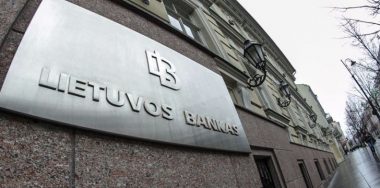After declining a “voluntary” survey conducted by the Office of the New York State Attorney General (AG), several major cryptocurrency exchanges are under fire for possibly operating illegally in New York.
According to the AG’s ‘Virtual markets integrity initiative’ report, crypto companies including Binance, Kraken and Gate.io have been referred to the state’s Department of Financial Services, after claiming to not be operating in the state as reason for declining participation in the survey sent out last April to 13 exchanges. Since that time, then-Attorney General Eric Schneiderman, hounded by allegations of violence against several women, has been replaced by State Solicitor Barbara Underwood.
Another exchange that declined to do the survey, China-based Huobi, was not included in the referral, which the AG said was made “for potential violation of New York’s virtual currency regulations.” It explained that New York required companies that ran virtual asset trading to get approval to operate and to adhere to state rules.
“Customers should be aware that the platforms that refused to participate in the OAG’s Initiative (Binance, Gate.io, Huobi, and Kraken) may not disclose all order types offered to certain traders, some of which could preference those traders at the expense of others, and that the trading performance of other customers on those venues could be negatively affected as a result,” the report said.
The AG criticized the industry for its currently insufficient “market surveillance capacities” similar to those of traditional exchanges, that prevented users from, among other things, creating multiple accounts, which exchanges do not allow as part of their terms and conditions.
“A platform cannot take action to protect customers from market manipulation and other abuses if it is not aware of those practices in the first place,” it said.
The AG also warned that the manner in which the exchanges—not just the four that snubbed the inquiry—decided to list a virtual currency was “largely subjective. No platform articulated a consistent methodology used to determine whether and why it would list a given virtual asset.”
The AG added, “For non-participating platforms… customers should be aware that those platforms may have received compensation for listing virtual currencies on their platform… One recent report, for example, asserted that Binance had sought millions of dollars in [BTC] in exchange for listing a new token.” It however did not specify which virtual currency was listed in this way.
The report also warned of insider trading of cryptocurrencies by which prices were determined prior to their rise or fall. “Customers should be aware the platforms that refused to participate in the OAG’s Initiative might not limit the access of employees or other insiders to non-public or otherwise sensitive information, or monitor employees trading to ensure that other customers are not being placed at a disadvantage,” the AG said.
New to blockchain? Check out CoinGeek’s Blockchain for Beginners section, the ultimate resource guide to learn more about blockchain technology.







